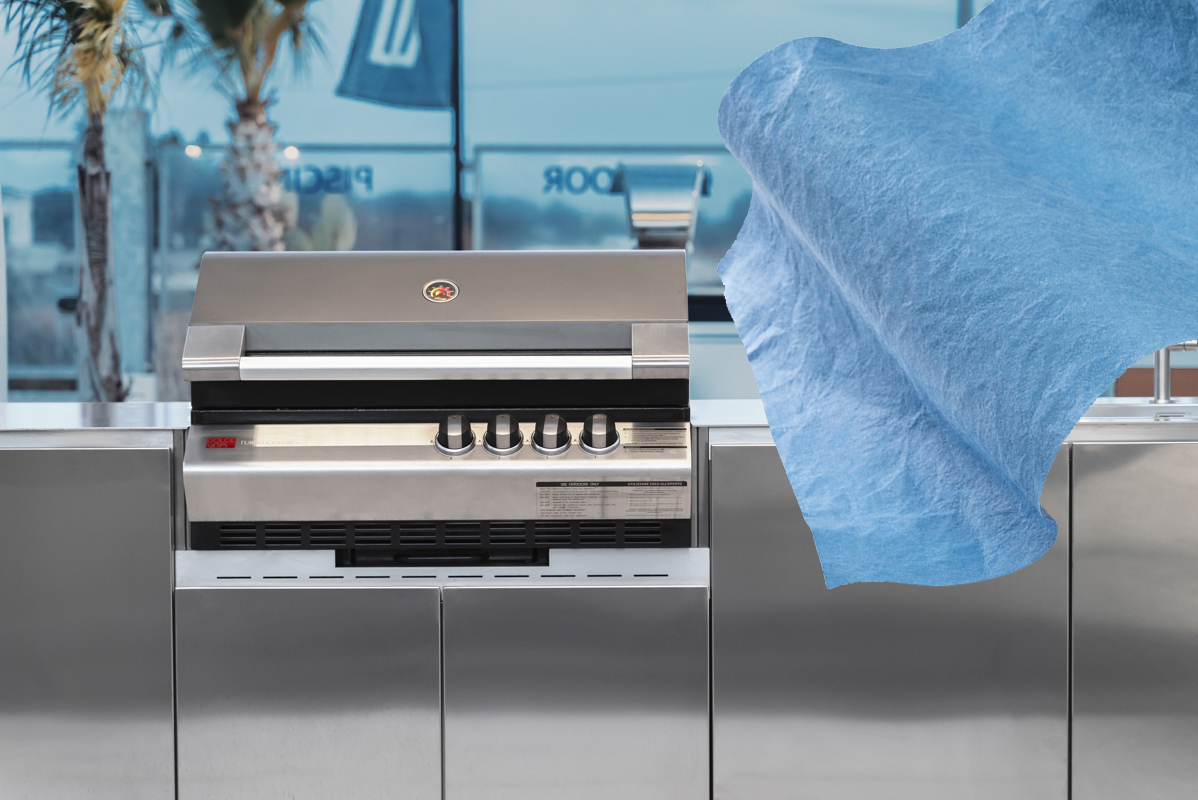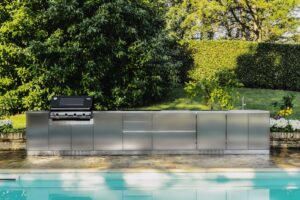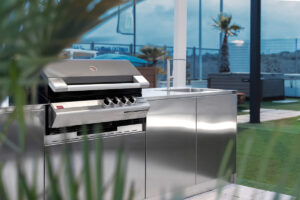Have you bought your outdoor kitchen, for your outdoor spaces, and are you enjoying barbecues with friends and lunches outdoors? You placed the kitchen in the garden (or next to the pool, or in the terrace or in your small attic) but a question is arising: how to clean it? Here we give you lots of practical advice and useful tips to maintain your outdoor kitchen at its best, without necessarily requiring too frequent maintenance that could damage the surfaces over time.
Clean immediately after using your outdoor kitchen
If you want your outdoor kitchen to last long, you will need to clean it immediately after use. You might be tempted to postpone the cleaning to the next time, but this is not ideal. The reason is clear: if you do this, the residues of grease, oil or others ingredients that you have used for cooking will be more difficult to remove than in an indoor kitchen. This is also due to the fact that outdoor kitchens are exposed to atmospheric agents and, therefore, they need more care. For this reason, it is essential to choose a material such as stainless steel. Compared, for example, to wood, steel can be cleaned easily and with much less effort than wood, kitchens with ceramic or plastic worktops. Moreover, steel is resistant to impacts, sunlight and other weather events, as well as to chlorine and salt. But careful! Acidic foods such as tomatoes, wine, fizzy drinks like Coca Cola or salt can damage steel if you do not clean the stains immediately.
How to clean steel furniture and appliances
Your outdoor kitchen is made entirely of steel because you are a practical person and you like the contemporary and clean design of this material. But how to clean it? It is not complicated at all! Small and less stubborn stains can be removed with hot water to which you can add a specific detergent for steel with a degreasing action and neutral formulation. To remove the stains, do not use abrasive sponges but soft cloths, possibly in microfibre.
Natural methods: vinegar, baking soda and lemon
If, instead, you prefer natural remedies and you want to stay away from chemicals, then you could opt for a do-it-yourself detergent made with ¼ of alcohol (or wine) vinegar, ¾ of hot water and a tablespoon of baking soda (we recommend to wait for the complete dissolution of the baking soda in order to not scrape the surfaces). Use this solution on steel furniture and appliances and they will shine like new.
If a powerful degreasing action is required, you can create a more effective mixture by adding some dishwashing liquid detergent to the previous compound. Also in this case, emulsify the mixture and then use it on the steel, leaving on for about a minute. An alternative would be to use the lemon juice (always diluted with water), which also has polishing properties although it must be dried more carefully with a soft and dry deer cloth in order to avoid halos. If there are limestone stains you can use it pure in drops, while diluted with lukewarm water has cleaning power on large surfaces.
The steel kitchens cleaning remedies that we have listed are universal for stainless steel, which means you can use them as much for cleaning the hob as for furniture and crockery. Lastly, for plastic or Plexiglas inserts, it is better to use hot water or natural degreasers.






